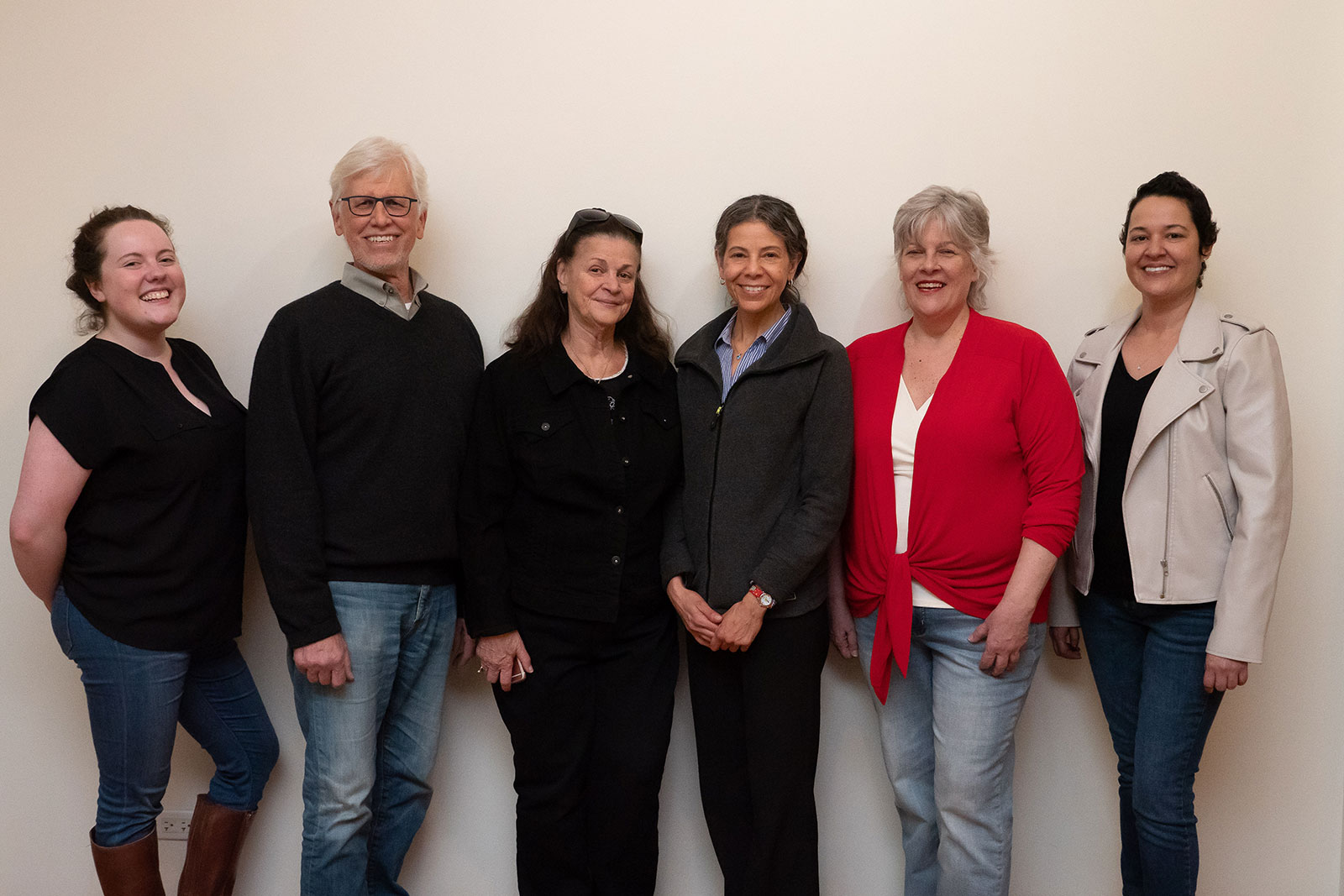On the top floor of Gilda’s Club Chicago, one man and four women gathered on a chilly Thursday evening to play. For six weeks, the group has participated in an ongoing improvisational program from the organization. Each two-hour class offers a crash course in the foundations of improv comedy, leading up to a group performance at a local benefit.
But the group appears to be unfazed by the pressure to perform for a room of strangers. Instead, as the evening unfolds with name exercises and renditions of the classic improv game “Freeze,” participants are more concerned with getting their chance to act out an unusual character before time runs out and the class officially ends.

“[Improv is] very much outside the realm of normal adult play. It’s not really a thing we do,” says Kat Bovbjerg, the Gilda’s Club volunteer who leads the Chicago location’s improv program. “The beautiful thing about improv is that anyone can do it.” Bovbjerg has done improv in Chicago since 2014 and worked for Gilda’s Club since 2016. As a research study coordinator at Northwestern’s Feinberg School of Medicine, Bovbjerg’s research focuses on quality-of-life issues after primary cancer treatment.
Looking for an opportunity to give back, Bovbjerg discovered Gilda’s Club and later their improv program. Leading an improv class was a natural fit for Bovbjerg, who has a warm, friendly, and accepting demeanor. Bovbjerg continues to participate in improv classes around the city, and she says the experience of working at Gilda’s Club has offered her a fresher perspective than the ones she normally encounters. “People at Gilda’s, as opposed to who I’m working with in my own personal classes […] have such rich life experiences.”

After legendary comedian Gilda Radner passed from ovarian cancer at age 42, Radner’s cancer psychotherapist Joanna Bull, her husband Gene Wilder, and broadcaster Joel Siegel founded Gilda’s Club and opened the organization’s first location in 1995. Twenty-four years later, Gilda’s Club now encompasses a worldwide collection of standalone and hospital-affiliated venues offering initiatives aimed to educate and support those impacted by cancer. Current club offerings include yoga and meditation sessions as well as mindfulness and jewelry-making classes, among many others.
But the Gilda’s Club improv program holds a deeper connection to the club’s namesake. Radner, who was best known as an original cast member of “Saturday Night Live,” is considered to be one of the most influential and important female comedians ever. Gilda’s Club programming is an important and natural tribute to her legacy. “Since Gilda’s Club Chicago’s inception more than 20 years ago, Gilda Radner’s comedic legacy and improvisation brilliance have been a cornerstone of our programming,” says Liz Sullivan, LCSW, OSW-C, the clinical program manager of Gilda’s Club Chicago. “Whether it’s through the improv mantra, ‘Yes And,’ or through formal training in improv workshops offered at the club, members find yet another tool to use during and after their cancer experience.”

Improv offerings at the club vary from season to season and have increased due to popular demand by Gilda’s Club members. The organization has worked with facilitators and improv groups over the years to provide the program for both beginners and seasoned performers, ensuring the fun doesn’t stop after the six-week program runs its course. It’s popularity comes as no surprise to Bovbjerg, who says improv offers participants a much-needed escape from the often emotionally and physically draining reality of their everyday lives. What if one were a police officer, or a rock star, or an anthropomorphic lamp? During improv, one can be all of
those things and more. “It allows people to have a safe space to try and make sure that everyone is accepted or learning how to say yes to other people’s ideas,” she offers. Sullivan agrees, adding, “This program is a testament to how humor, laughter, and camaraderie can support individuals throughout their cancer experience.”
Back in the clubhouse, participants are ready to rehearse their run of show for their big performance the following week. The show will consist of renditions of the improv games “Five Things,” “Dr. Know-it-All,” “Three Lines,” and finally “Freeze.” Here, participants are free to be anyone they want to be—a potent appeal. “It’s this making things up with other people, in a way that once it’s on stage, feels incredibly spontaneous and magical, and you’re playing with the people together,” begins Bovbjerg. “When it kind of clicks together and you’re really in the flow of the moment with other people, it’s incredibly fun.”
To learn more about this or other Gilda’s Club programs, visit GildasClubChicago.org.







